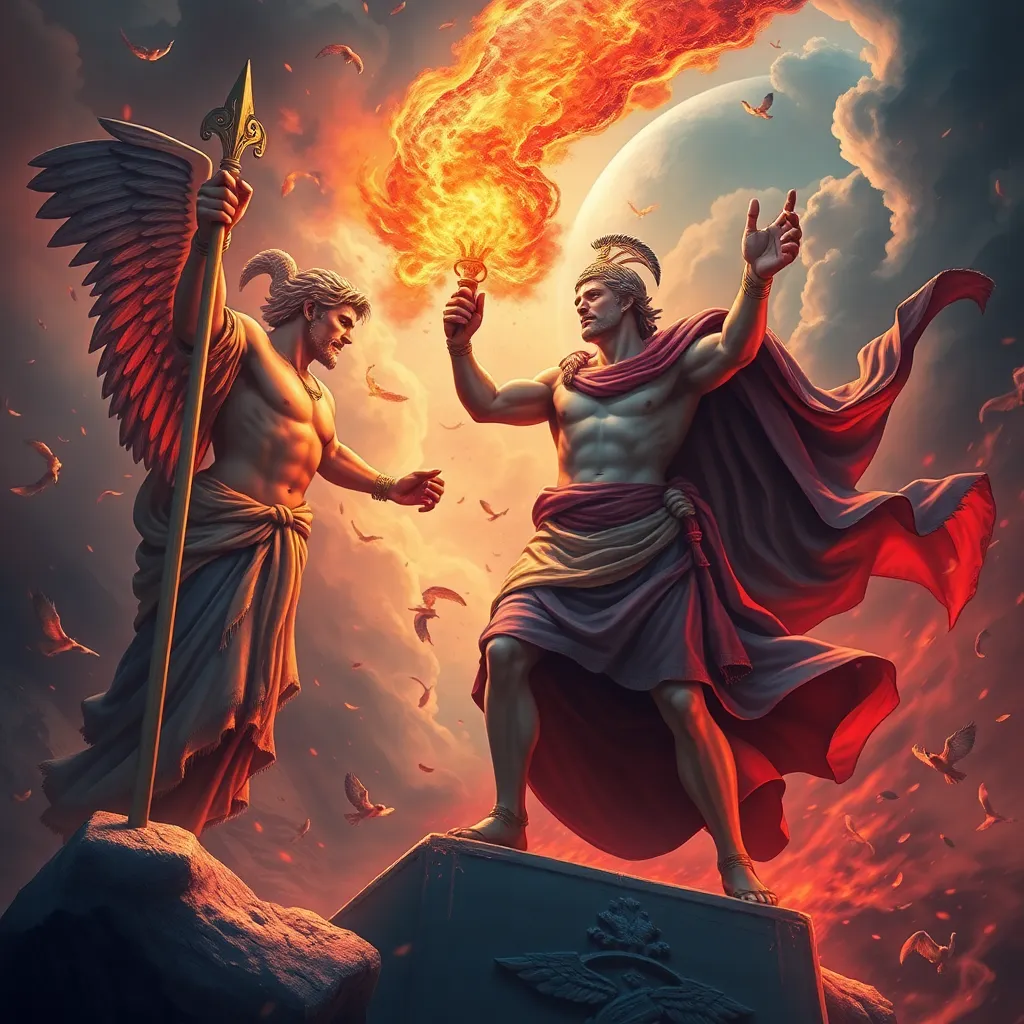Perseus’ Triumph Over Evil: The Moral Lessons of His Story
I. Introduction
Perseus, one of the most celebrated heroes of Greek mythology, is known for his extraordinary feats and adventures that have captivated audiences for centuries. Born as the son of Zeus and Danaë, his story unfolds within a tapestry of themes including fate, bravery, and the struggle against malevolence. The importance of Perseus in Greek mythology cannot be overstated; he serves as a symbol of the hero’s journey, showcasing the virtues and moral dilemmas faced by those who confront evil. This article aims to explore the moral lessons derived from Perseus’ story, illustrating how his triumphs can inspire us today.
II. The Origins of Perseus
Perseus’ tale begins with a prophecy that foretold the demise of his grandfather, King Acrisius of Argos, at the hands of his own grandson. In an attempt to thwart fate, Acrisius imprisoned his daughter Danaë, but Zeus intervened, transforming into a golden shower to reach her. As a result, Perseus was born, destined to be both a hero and a harbinger of his grandfather’s doom.
The themes of abandonment and resilience permeate Perseus’ early life. After learning of the prophecy, Acrisius cast Danaë and her infant son into the sea in a wooden chest. However, they were rescued by the fisherman Dictis, who raised Perseus as his own. This act of abandonment only strengthened Perseus’ resolve and set the stage for his future heroics.
III. The Quest for Medusa
Perseus’ journey truly begins when King Polydectes, who desires Danaë for himself, sends Perseus on a seemingly impossible quest: to retrieve the head of Medusa, a Gorgon whose gaze could turn anyone to stone. This challenge serves as a significant metaphor for the fears and obstacles we face in life.
Confronting fears is a key element of Perseus’ journey. He must not only face Medusa but also grapple with the implications of his quest. To prepare for this daunting task, Perseus seeks the help of the gods, acquiring essential tools and allies:
- Hermes provides him with winged sandals for swift travel.
- Athena gifts him a reflective shield to avoid Medusa’s deadly gaze.
- He receives a sword from Hephaestus, forged for battle.
- The Nymphs of the West give him a magical bag to safely contain Medusa’s head.
IV. The Encounter with Medusa
The encounter with Medusa is a pivotal moment in Perseus’ story. Medusa, once a beautiful maiden, was transformed into a monster as punishment by Athena. She symbolizes not only physical evil but also the darker aspects of human nature and the consequences of unchecked power.
In facing Medusa, Perseus embodies courage and cleverness. He understands that brute strength alone will not suffice. Instead, he employs a strategic approach:
- Using Athena’s reflective shield, he avoids direct eye contact with Medusa.
- He strikes decisively with his sword, showcasing both bravery and skill.
- Perseus’ triumph is not merely about defeating Medusa, but also about mastering fear and using intellect to overcome formidable challenges.
V. The Consequences of Victory
Upon returning from his quest, Perseus wields Medusa’s head as a powerful weapon. The ability to turn enemies to stone becomes a symbol of his victory over evil. However, this newfound power also brings moral implications.
Perseus’ return journey is marked by significant encounters that demonstrate the impact of his victory:
- He saves Andromeda from the sea monster Cetus, showcasing the hero’s role as a protector.
- Upon confronting Polydectes, he uses Medusa’s head to petrify the king and his court, a reflection of justice served.
The moral implications of power and responsibility are evident as Perseus learns that his actions can affect others profoundly, a lesson that resonates throughout the ages.
VI. Perseus as a Heroic Figure
Perseus embodies traits that define him as a heroic figure. His bravery, cleverness, and willingness to confront challenges head-on set him apart from other mythological heroes like Heracles or Theseus. While they each face their own trials, Perseus’ journey emphasizes a unique blend of intellect and valor.
The legacy of Perseus continues to thrive in contemporary culture, inspiring numerous adaptations in literature, film, and art. His story serves as a timeless reminder of the hero’s journey and the universal struggle against evil.
VII. Moral Lessons Derived from Perseus’ Triumph
From Perseus’ journey, we can derive several moral lessons that remain relevant today:
- The value of bravery and resourcefulness: Perseus demonstrates that true heroism often lies in facing fears and using one’s wits to navigate challenges.
- The role of fate versus free will: While destiny plays a significant role in Perseus’ life, his choices ultimately determine his path, illustrating the balance between fate and personal agency.
- Lessons on confronting evil: Perseus’ triumph over Medusa teaches us that confronting and overcoming evil requires courage, strategy, and moral integrity.
VIII. Conclusion
In summary, Perseus’ journey is a rich tapestry of adventure, moral dilemmas, and triumph over evil. The lessons learned from his story resonate with modern audiences, reminding us of the importance of bravery, the balance between fate and free will, and the need to confront malevolence in our lives.
As we reflect on Perseus’ legacy, we find that the essence of heroism transcends time, encouraging us to embrace our own journeys against the evils we face, both in the world and within ourselves.




